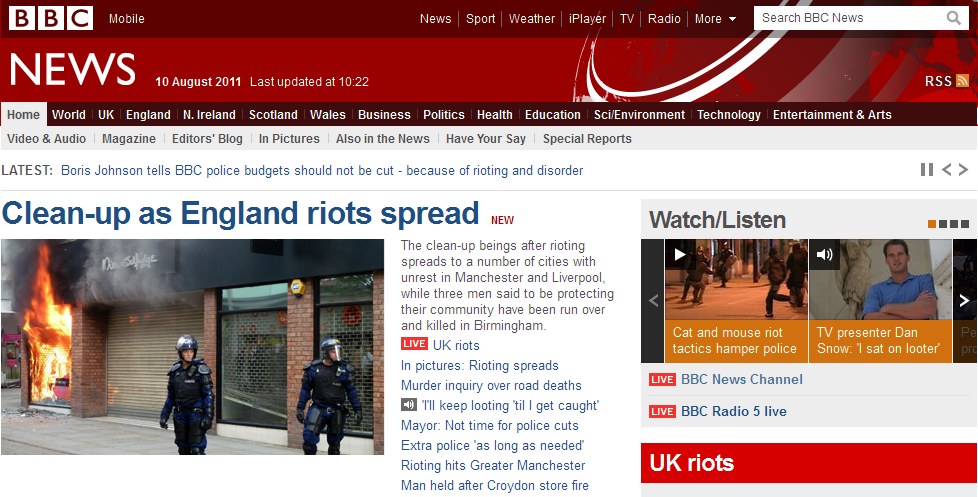Ever noticed that there’s a group of people who don’t vote? Good people, by and large… but they don’t vote.
I noticed this during post-referendum chats with our office cleaners. Almost all of them said they didn’t vote. One said she voted for who her dad told her to vote for. I was a bit taken aback.
“But surely if you don’t vote, your interests won’t get looked after?” I asked.
One looked at me and snorted, “Like that happens! Doesn’t matter who gets in, they’re all the same!”
Sounds like a stereotype.
At the time, I wasn’t politically active. Now I am. The time before June 2016 is simply stated as “before the referendum” around here and with most people I know. As referendums go, it dwarfed all others. The Referendum, it should be. Because at that moment, a lot of things changed.
And, unusually, a lot of people voted. They voted for a change, and they were told it would make the NHS better and leave the country with more money.
I was deeply upset. I kept arguing with the hardcore Leavers, and then, in private, a friend sent me this message:
I’ve read a lot of what you have shared about the referendum, and as I leave voter I now fear I have made the wrong decision. I didn’t envisage the racial attacks that have since occurred, and did not vote out on the basis of immigration. I come across some of these people in work, and you then realise these are just normal and friendly people on the whole. I don’t have a great knowledge of politics and this is dangerous, as we all have the option to vote. I almost never voted, as had no strong bias to either side. I guess I’m trying to say your passion for remain has made me sit back and look at things from other people’s views. I can see you want the best for people. I wish I realised sooner, although it wouldn’t have changed the result.
Thing is, a lot of people realising sooner would have changed the result.
But people like me… we voted. But we didn’t try, did we? I know I didn’t protest, or man a stand in the streets. Had it too easy, you see. I thought others were doing it all anyway. Different people.
Let’s go back to our cleaner. Why didn’t she vote? Because she didn’t feel like she made a difference. Like she was going to get the shitty, difficult end of the stick either way. Not only that, but politics felt unreachable to her.
The Referendum got more people engaged, largely because a simple promise was made. £350m more for the NHS.
And people, even in post-Brexit Halton are still worried about the NHS. Here’s a local survey I did about concerns – sample size not massive at 67, but it’s enough to be a reasonable representation for the Halton area.

NHS is important. People worry about it. Because ultimately, we all get some sort of health problem at some point in our lives. Or our kids do. And we hear the stories of bankruptcies faced by US citizens due to their harsh private healthcare system.
Then Brexit and UK stability came in highly. And education. These are people’s primary concerns. I was actually surprised how few were worried about the benefits system, but then unlike the popular image of the North, most people aren’t substantially dependent on benefits. At least not in Widnes and Runcorn. So it’s not their biggest priority.
But let’s get back to our cleaner. Why doesn’t she* vote?
Unfortunately she couldn’t articulate it.
So I decided to remember what it was like when I was young, skint and facing homelessness. At no point did it occur to me to contact a councillor or my MP to see what could be done. They were distant people. Different people. Like teachers. I remember the shock and surprise when I learned that teachers had to go to the toilet! Yes really – they too need a wee sometimes. Amazeballs.
When you’re relatively naive, you don’t see the world all that clearly. Business-people are different. Asian people are different. People from the next town along… are different. It doesn’t matter. If you don’t know people, they’re different.
And most people don’t really know their local political parties. In the thirty years during which I’ve been able to vote, I’ve only heard from politicians during elections. I have never ever spoken to one on the doorstep. Except for one short period when I lived in Garston and my MP was David Alton. Now, David Alton has some peculiar views that I disagree with, but he’s a Liberal Democrat, now a Lord, and his councillors would drop in these weird Focus newsletters to the house. And I’d read them! I learned about what was going on in the area. They even had contact details so I could get in touch! They reached out… to me! Weird. But I realised, all politicians should try to do this. Push out their messages.
Then I moved back to Widnes.
And never, ever heard from a politician. Except during elections.
Sure, sometimes they’d say something in the local papers. But nothing relevant to me. Nothing that would fix my problem of living in a shitty shared house. Nothing that would make it easier for me to get a decent home. My parents had been able to get a council house, but it was denied to me. And I couldn’t save enough for a deposit on a house. It didn’t help that I wasn’t great with money either (credit card advertising has a lot to answer for!). But just being a young man, trying to run a car to get to work, renting a room, feeding myself, clothing myself and so on was sometimes tough. And nothing I ever saw from a politician made much impact on me.
Then I got older. And richer. Slowly but surely I made more money. I became a freelancer and discovered a piece of legislation might affect me – IR35. It wasn’t a massive issue, but it affected me. When politics affects you, you get to know stuff.
But working people are looked after by Labour, right?
I used to think that. Many people I knew voted Labour. Always voted Labour. Unquestioningly. I didn’t get it until I learned more about how unions work. Then I realised that unions and Labour are tied at the hip. Which is fine. The Labour Movement was what Labour was about, and it was massively important to the working man. Did a brilliant job.
Sadly, some unions got a bit giddy on power and decided to have battles to get more power. Which is a shame. They’d succeeded at getting working wages and privileges to a good point. They couldn’t see that some of those privileges were unaffordable in the long term. They simply had to keep them. At all cost.
That led to an interesting thing happening. Large organisations such as public sector, NHS and corporates started to outsource more and more functions. Our cleaners are employed by a company employed by our landlords. In many ways that can work. But truth is, that a cleaner at ICI or any other old large corporate like BA would have been exposed to unions, but our cleaners today are not. And even they were, many work for small companies disinterested in trade unions and employing fewer than 21 people. Others may not wish to join trade unions because they don’t like that they fund a political party.
So they’re not represented, really, by Labour. Labour mostly cares about people in trade unions and people who vote for them. People in unions are, for the most part, not the poorest part of society. In fact, I don’t think I know anyone in a union who earns less than about £30k a year once they’ve got five years experience in. That’s one reason why Labour are surprisingly reticent about taxing people in the OK to Quite Well Off groupings.

You could ask why the Lib Dems aren’t harder on the top 2%, but having worked with a lot of that range of people I can tell you that tax on income starts becoming optional at that level. If tax is too high they either put it into various perfectly legal vehicles (pensions and ISAs work well up to a limit) or they start looking keenly at moving cash offshore if possible. And taxing people too much can feel very unfair to those people. Get a £30k bonus and see £20k go to the government. They may not be right to feel like that, but that’s not the point. They feel unfairly treated and so get motivated to look for alternatives. As the IFS study reveals, the Lib Dems would almost certainly raise a lot more money with their tax changes than Labour would.
Labour is the party of the middle classes.
It’s true. Student fees position? Well, the current regime of student fee repayments introduced by the coalition means your repayments are lower if you earn under £35k than under the earlier top up fees system introduced by Labour.
Pensions position? Most of the people affected are people with good pension incomes. They are not poor people. Poor pensioners are considered in a secondary way, because they do at least vote. But most of the policies continue to leave wealthy pensioners paying far less in tax than young people on equivalent incomes.
The unions? Most union members earn good money. According to a study by the Department for Business, Innovation and Skills, trade union members were paid an average of £14.45-per-hour, 5p more than in 2012 (£28k/yr, equivalent to over £30k/yr today) – source
So who does represent the best interests of our cleaners?
I say the Liberal Democrats. A party I finally got involved with in 2016, after The Referendum. You’ve seen the chart above, and in the early years of coalition, before the Conservatives neutered them, they did a great job of taking low earners out of the tax system entirely. The UK’s Gini Coefficient improved for once!

But here’s the problem for the Liberal Democrats. Nobody really knows this. But our doorstep action, whilst being great on a local level, needs to talk about the bigger issues. Potholes and poorly kept parks are important, but these things rarely keep the bulk of people awake worrying. But the NHS does worry people. Brexit does worry people. Not being able to feed the kids does worry people. These issues need addressing. Loudly and proudly.
If you’re campaigning in the 2018 local elections, it’s important to share a little bit about what the Lib Dems mean for everybody. Not just campaign in the middle class areas and get squeezed, but in the poorer working class areas where we can make a big difference. Our policies are better for them. They just don’t know it. Not to tell them this is a disservice to them and to the Liberal Democrats. The working poor need us to help them. And if we reach out to them, maybe they’ll reach out to us. And our cleaners and their friends – they’re essential people, and once they get going they are awesome!













